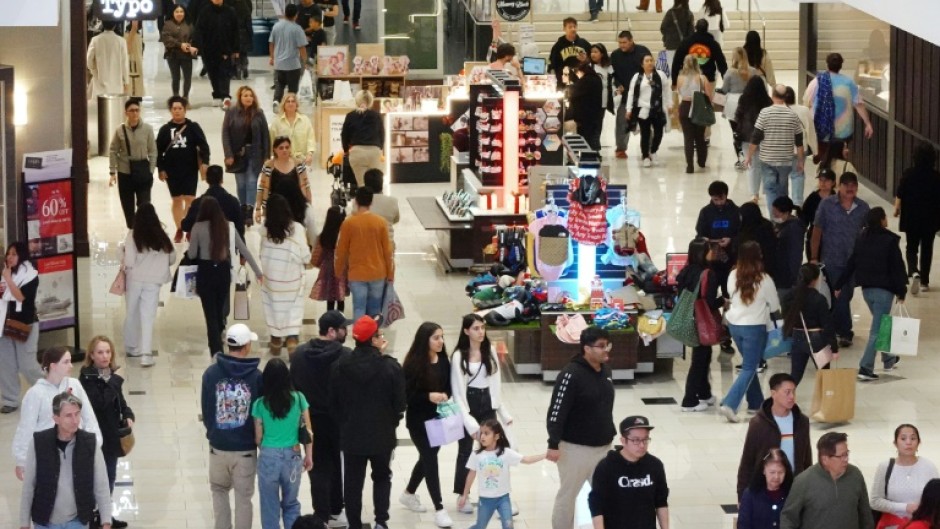US retail sales accelerated more than anticipated in December, closing out a year marked by resilient consumption, government data showed on Wednesday.
Sales picked up in the final month of 2023 by 0.6 percent to $709.9 billion, up from a 0.3 percent bump in November, said the Commerce Department in its latest report.
For the full year of 2023, total sales were up 3.2 percent from 2022, the report added.
The strong showing comes even though consumer demand was expected to weaken in the face of higher interest rates. In part, a resilient job market has helped to support spending over the past year.
The Federal Reserve rapidly lifted the benchmark lending rate since early 2022 and has in recent months held rates steady at a high level, in order to lower inflation sustainably.
While this is typically expected to hit consumption as borrowing becomes more expensive, retail sales has generally held up.
Compared with December 2022, retail sales last month was 5.6 percent higher, according to the latest data.
Among the different sectors, sales at motor vehicles and parts dealers rose 1.1 percent from November last month, and those at department stores jumped 3.0 percent, said the Commerce Department.
But sales at gasoline stations were down by 1.3 percent between November and December 2023, while those at health and personal care stores slipped 1.4 percent.
- Slowing further -
"The stronger gain in retail sales in December was driven by robust sales at department stores and online retailers, which rounded out a solid holiday shopping season," said economist Michael Pearce at Oxford Economics in a note.
But he noted that spending at restaurants and bars is "flatlining."
"We expect spending will slow a little further over 2024 as employment growth weakens and household savings rebound," he added.
Analysts have warned that advance retail sales estimates can be revised significantly.
And in the bigger picture, "the trends elsewhere are broadly consistent with slowing, but still robust, spending growth," said economist Kieran Clancy of Pantheon Macroeconomics.
While the 1.1 percent rise in auto and parts sales is slightly above the underlying trend, Clancy added that "the broader downshift in spending growth remains firmly intact," with higher interest rates likely to weigh on purchases ahead.
With inflation cooling while the labor market and spending remains intact, economists note that the US economy is likely to achieve a so-called "soft landing" -- in which price increases ease without a damaging downturn.
As the Fed mulls rate cuts this year, optimism is growing that the country would be able to do so.

